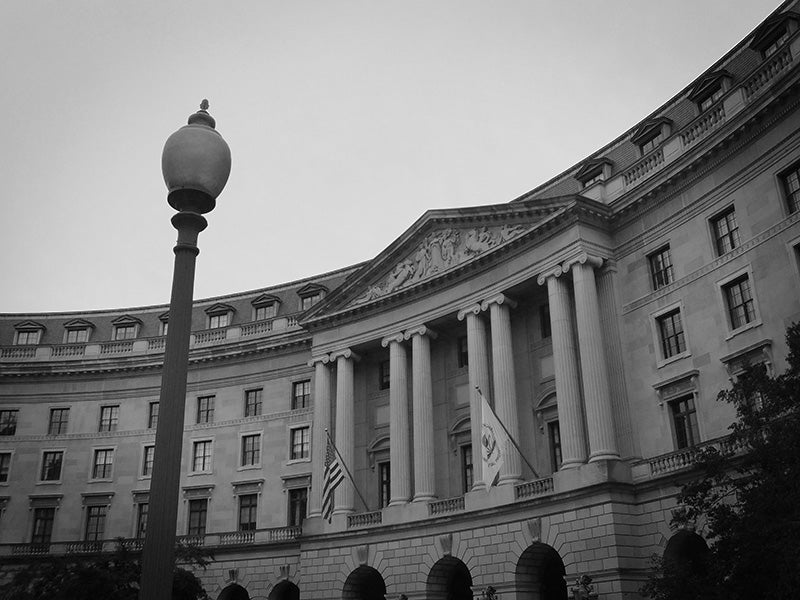Coalition Sues EPA Over Weak Regulation of Toxic Flame Retardant Found in Black Plastic Kitchen Utensils
DecaBDE, linked to cancer and harm to children’s brain development, threatens Indigenous and frontline communities due to inadequate EPA regulations
Contact
Earthjustice, representing the Yurok Tribe, Alaska Community Action on Toxics, the Center for Environmental Transformation, and the Consumer Federation of America, filed a lawsuit against the Environmental Protection Agency (EPA) challenging its 2024 rule on decaBDE, a toxic flame retardant linked to cancer, reproductive issues, and harm to children’s brain development. DecaBDE is also highly toxic to salmon and other wildlife.
The EPA is not adequately regulating this highly toxic chemical. The federal rule has unlawful loopholes that, among other things, allow recycled decaBDE into our everyday products, like black plastic kitchen utensils. Allowing unrestricted recycling of plastics containing decaBDE also puts workers and nearby communities at risk of harm.
“Federal law requires aggressive regulation of chemicals like decaBDE that are highly toxic and persist in the environment and people’s bodies,” said Katherine O’Brien, an attorney with Earthjustice. “But EPA’s rule does virtually nothing to address the ongoing sources of decaBDE exposure that EPA itself identified as the biggest threats.”
The rule also allows ongoing pollution of waterways and lands with decaBDE-contaminated wastewater and sewage sludge and fails to regulate the disposal of products containing decaBDE. Indigenous communities that rely on salmon and marine mammals as cultural food sources and frontline communities living near recycling and waste disposal facilities face heightened risks of exposure to decaBDE through these loopholes.
DecaBDE was widely used for decades in electronics, furniture, and vehicles. Every year, millions of pounds of these products are burned, dumped, or recycled, releasing decaBDE and its toxic byproducts into the environment and contaminating water, soil, and food.
“DecaBDE is a toxic chemical that puts the health of Indigenous and frontline communities at risk,” said Pam Miller, Executive Director of Alaska Community Action on Toxics. “The EPA’s weak rules allow it to contaminate our water, food, and environment. We need stronger protections to keep our families and future generations safe.”
DecaBDE lingers in the environment, accumulates in people and wildlife, and poses serious health risks, including cancer, hormonal disruption, and developmental harm in children. It also endangers salmon recovery, which is vital to the cultures and economies of Tribal Nations.
“Our communities deserve to be free from decaBDE, a toxic chemical that continues to contaminate both human bodies and the environment,” said Courtney Griffin, Director of Consumer Product Safety at Consumer Federation of America. “Exposure to decaBDE can have serious lifelong consequences, including neurological development of children. Effective action is long overdue.”
Earthjustice sued the EPA in 2021 for issuing weak rules on DecaBDE that violated the Toxic Substances Control Act by failing to protect people and wildlife. After nearly four years of delays and promises for stronger safeguards, the EPA’s 2024 rule changes still left major loopholes, allowing decaBDE exposure to continue. Earthjustice and its partners are returning to court to protect communities and ecosystems from this toxic threat.
“Our community is surrounded by polluting industries, including a car shredder that stores huge piles of shredded car interiors on site,” said Jonathan Compton, executive director of the Center for Environmental Transformation. “Regulating proper disposal of decaBDE would mean one less toxic substance entering our air, soil, water, and bodies.”

Additional Resources
About Earthjustice
Earthjustice is the premier nonprofit environmental law organization. We wield the power of law and the strength of partnership to protect people's health, to preserve magnificent places and wildlife, to advance clean energy, and to combat climate change. We are here because the earth needs a good lawyer.